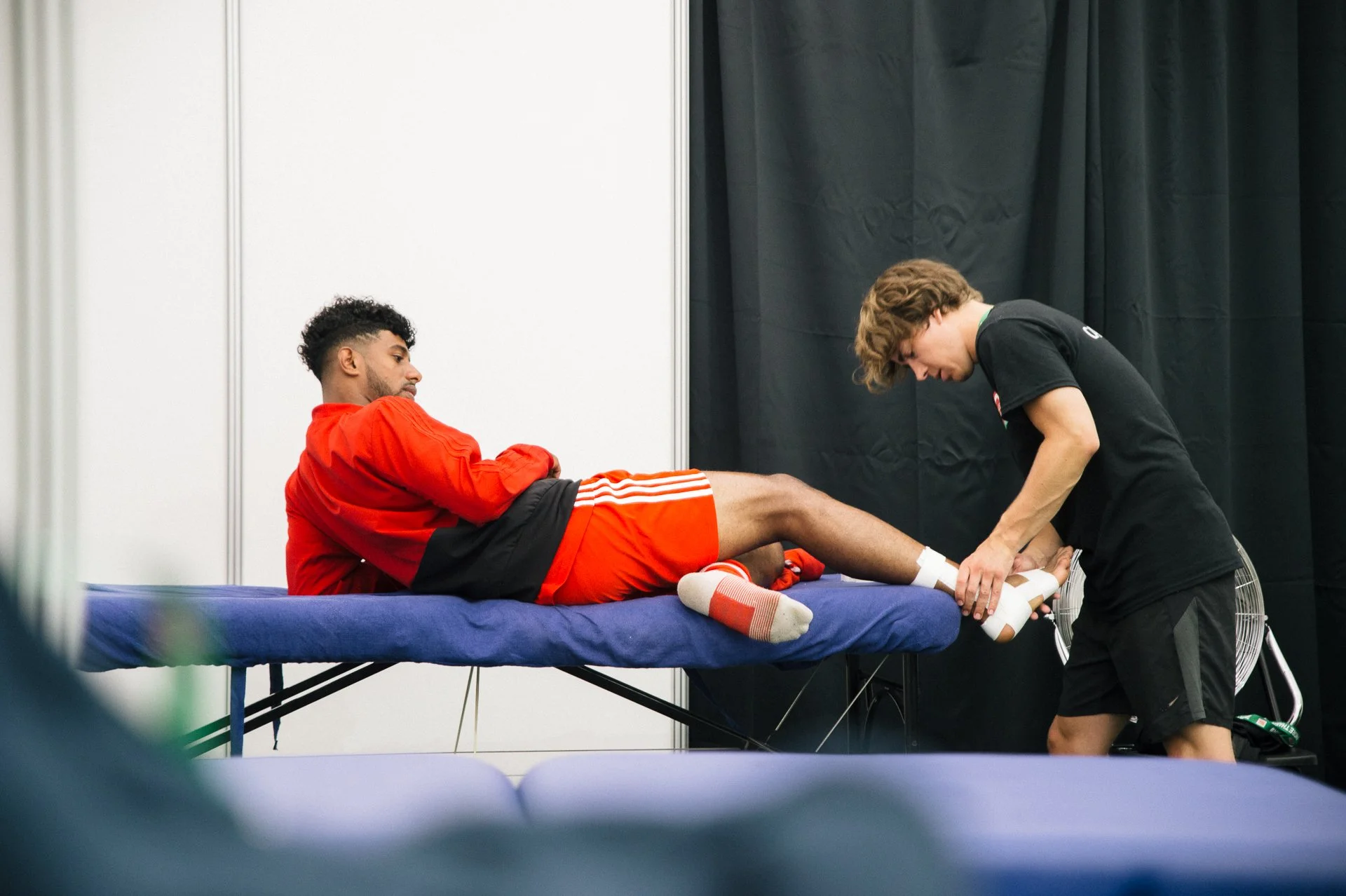“It is not only the pure injury by itself but also the bigger picture”
|Image: Daniel Lipinski
The Homeless World Cup depends on a wealth of important partnerships from around the world. One such partnership which has become indispensable to the competition and its community of players is the physio room run by both physiotherapist students and teachers from Oslo Metropolitan University and University College Copenhagen.
Between massaging sore thighs, taping up injured wrists, providing knee exercises and self-care advice, physio professor Hilde Sylliaas from Oslo found some time to talk about the set-up: “We worked ourselves into the Homeless World Cup because at all events for sport there are a lot of medical staff and for these players it is also necessary. A tournament like this is very intense, particularly because a lot of the players are not trained to deal with so much activity day after day.”
|Image: Daniel Lipinski
The partnership is mutually beneficial, Sylliaas explains: “For our students it is important because of their interest in sport therapy as well as our agenda to introduce students to people with lower social health. Our education doesn’t reflect or work with people who have experience of homelessness or drug abuse, so we are working on programmes that oppose the lack of access to physiotherapy by marginalised communities.”
Physiotherapy is unfortunately not as readily accessible to all of society, particularly those most in need; however, both Sylliaas and her colleague Anne Langaas explain that another barrier physiotherapy faces is that “Some players are ashamed of asking for help and of their bodies so maybe don’t want to come here, and so it important for us to reiterate that we love that the players are here and that it is important to receive physio.
“Something that I have come across is players’ lack of confidence in their bodies. When you have led a very tough life, your body will have pains and aches, so you can recognise this history in their bodies. It is not only the pure injury by itself but also the bigger picture, and that is something important for the students to take into account.”
Student Emilie Oppegaard from Oslo Metropolitan University describes the impact that being part of the Homeless World Cup here in Cardiff has had on her as she begins her journey as a qualified physiotherapist: “I have loved seeing people from so many different nations and a lot of injuries. For me it is amazing because I am nearly qualified. We haven’t done much with sport physiotherapy, so it is really interesting to be here and most of what we are dealing with is acute.”
|Image: Daniel Lipinski
Student Sofie Cramon from the University College Copenhagen explains: ‘What has been interesting is the interaction between me and the player, which is really hard because we don’t speak the same language. This is something we don’t learn at university. We use google translate a lot here. But still it has been interesting building trust and understanding with a patient without language.”
Physiotherapists help to aid recovery for those affected by injury or disability, but they are also believers in general self-care of the body as a whole. Some final words of advice for all from our esteemed physio partners: ‘We have this cultural idea that the body should be perfect, but we should be happy that the body is able to get up in the morning and walk around and play football and everything else that we ask it to do. So be happy with your functioning body and treat it with kindness.”
Words: Deborah May
Images: Daniel Lipinski / Soda-Visual



